DISTURBIA. Entertaining Alfred Hitchcock-inspired thriller
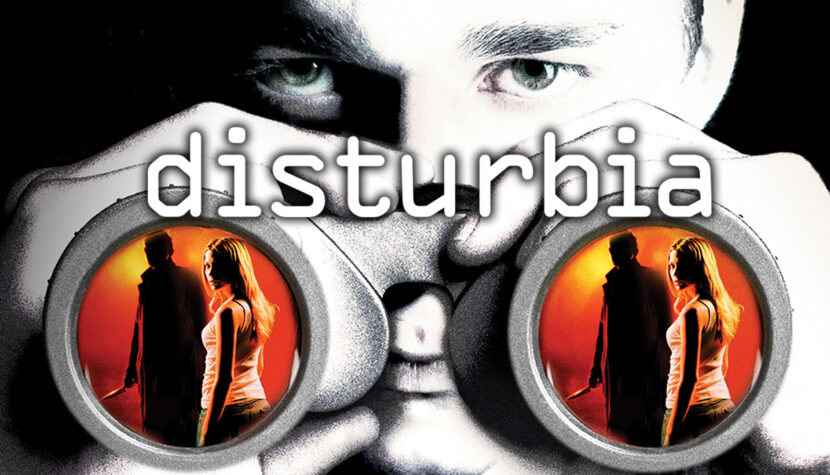
Therefore, we find quite a few films whose central theme is ‘spying with binoculars.’ The genre diversity of such productions allows everyone to find something for themselves: a thriller (Alfred Hitchcock’s Rear Window), a comedy with elements of black humor (The Burbs by Joe Dante), or even a romantic comedy (The Girl Next Door by Luke Greenfield – although the spying theme is only present for a moment). To the mentioned titles, we can add D.J. Caruso’s film Disturbia, whose classification, however, presents certain difficulties. But more on that in the further part of this review.
Kale (Shia LaBeouf) of Disturbia is sentenced to three months of house arrest for assaulting a teacher. A special sensor on his ankle is supposed to ensure that the young man does not violate the court order. To make matters worse, Kale’s mother (Carrie Anne-Moss), to force him to find a constructive activity, cuts off his access to iTunes and limits other forms of entertainment. Kale starts observing neighbors and, in general, life on his seemingly quiet street. A married couple with an attractive daughter, Ashley (Sarah Roemer), moves in next door. The girl regularly sunbathes and swims in the backyard pool, much to Kale’s delight. The attention of the young man is also drawn to the neighbor – the seemingly outsider Mr. Turner (David Morse). Kale suspects that Turner has something on his conscience. Therefore, he decides to observe the mysterious resident of the street as closely as possible.
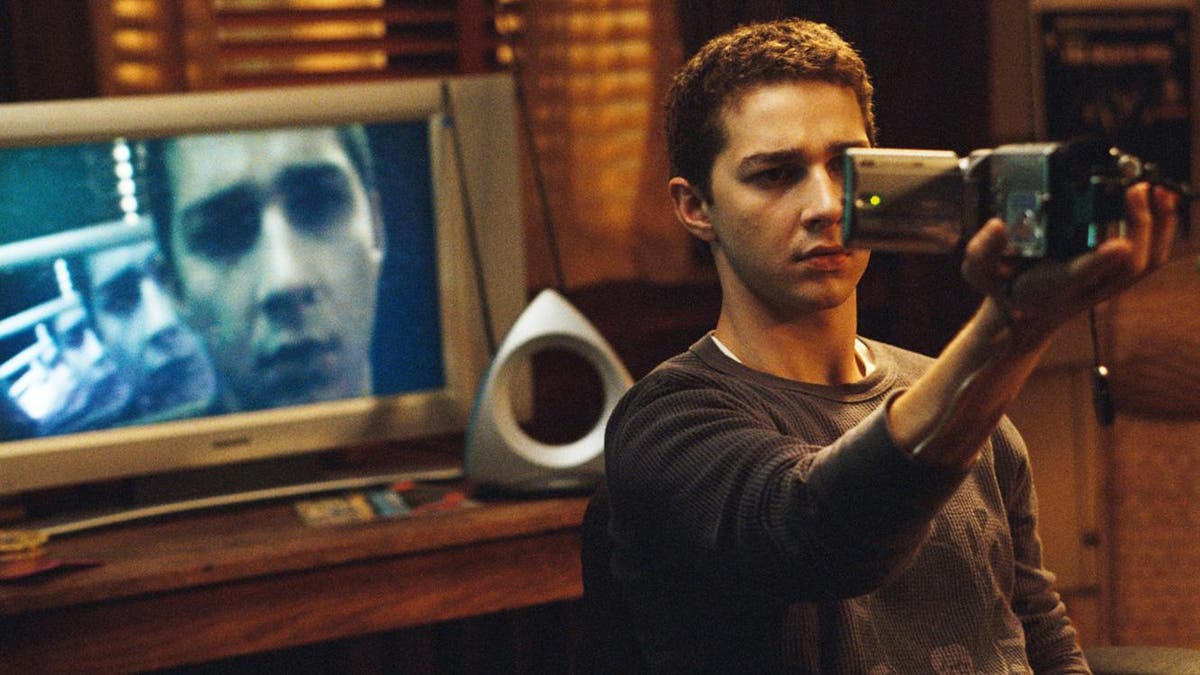
Disturbia is clearly divided into two main parts. In the first part, which contains many comedic elements, Kale’s attempts to court Ashley are presented. In the second part, the film turns into a fairly well-executed thriller, where Kale tries to catch his neighbor in the act. Such an unusual genre mix is always a significant challenge for the creator. Fortunately, Caruso rose to the occasion, proving to skeptics that he can produce a smooth spectacle (considering the director’s previous works, there could have been justified doubts about this). The screenwriters (Christopher B. Landon, Carl Ellsworth) also deserve praise – they managed to squeeze a lot out of the overused themes and even inject some freshness into them. Rumor has it that the original script was written in the 1990s and shelved because of significant similarities with the remake of Rear Window starring Christopher Reeve (produced for television at the time). Only in 2004 did someone remember the ‘waiting’ script, which was then modified and modernized.
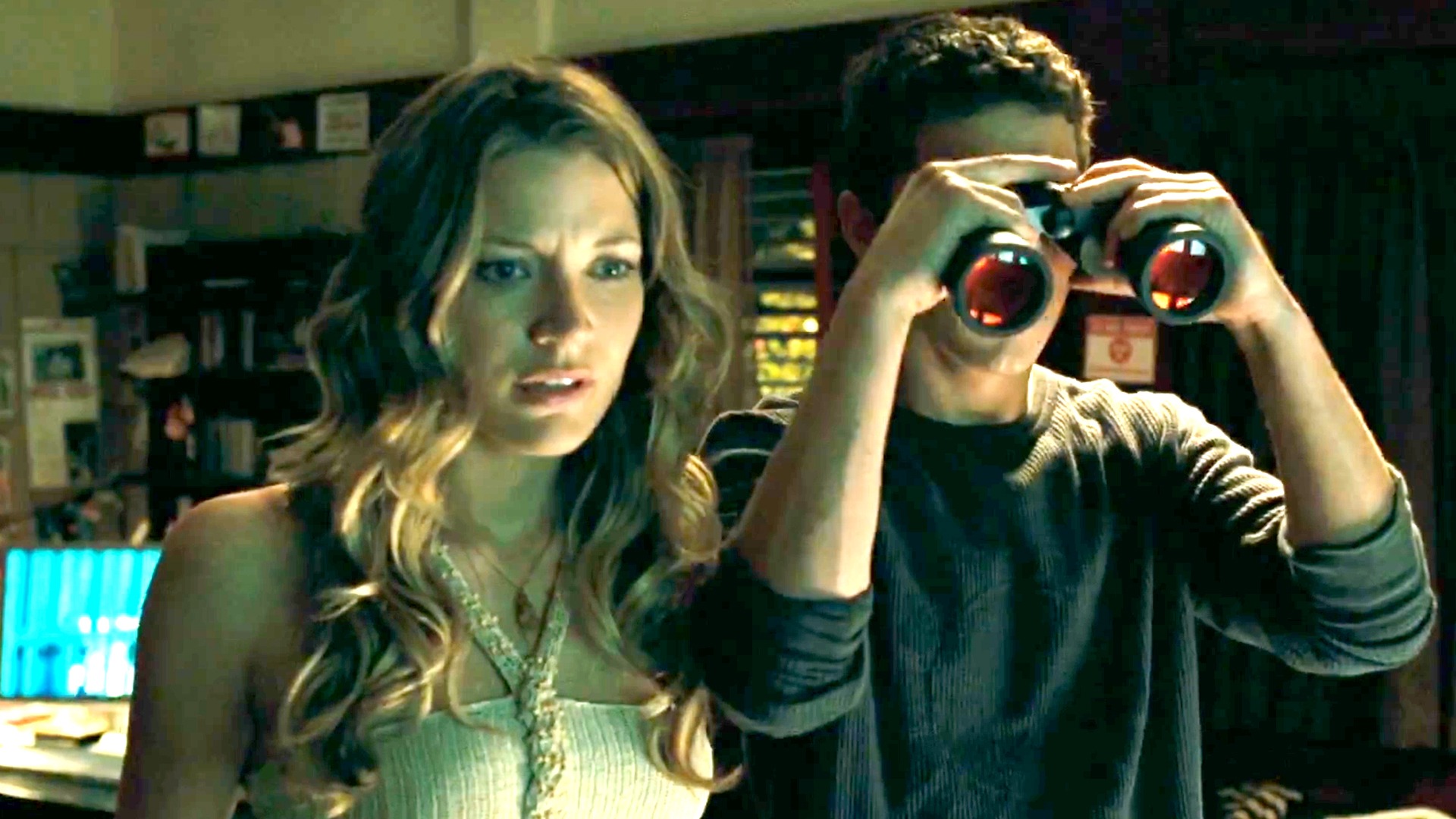
Special mention should be given to the performers. Shia LaBeouf takes the lead, essentially carrying the entire spectacle on his shoulders. After watching the film, it can be confidently said that despite his young age, LaBeouf feels great in front of the camera. There is no artificiality in the character he plays, and the viewer easily ‘befriends’ with Kale. Sarah Roemer, with limited experience, also did very well. Although her role was limited to being an ornament, it’s impossible to deny the charm, beauty, and vitality she brought to the character of Ashley. The character created by David Morse – the mysterious Mr. Turner – is also intriguing. Morse needs only one grimace to show extremely different personalities – from a kind and caring person to a murderer-sociopath. Besides the main character, Turner is the most interesting character in the film. The man values peace and tries not to attract attention. However, there is an impression that beneath his composure and gentle looks lies some dark secret. Carrie Anne-Moss, portraying Kale’s mother, is also worth noting.
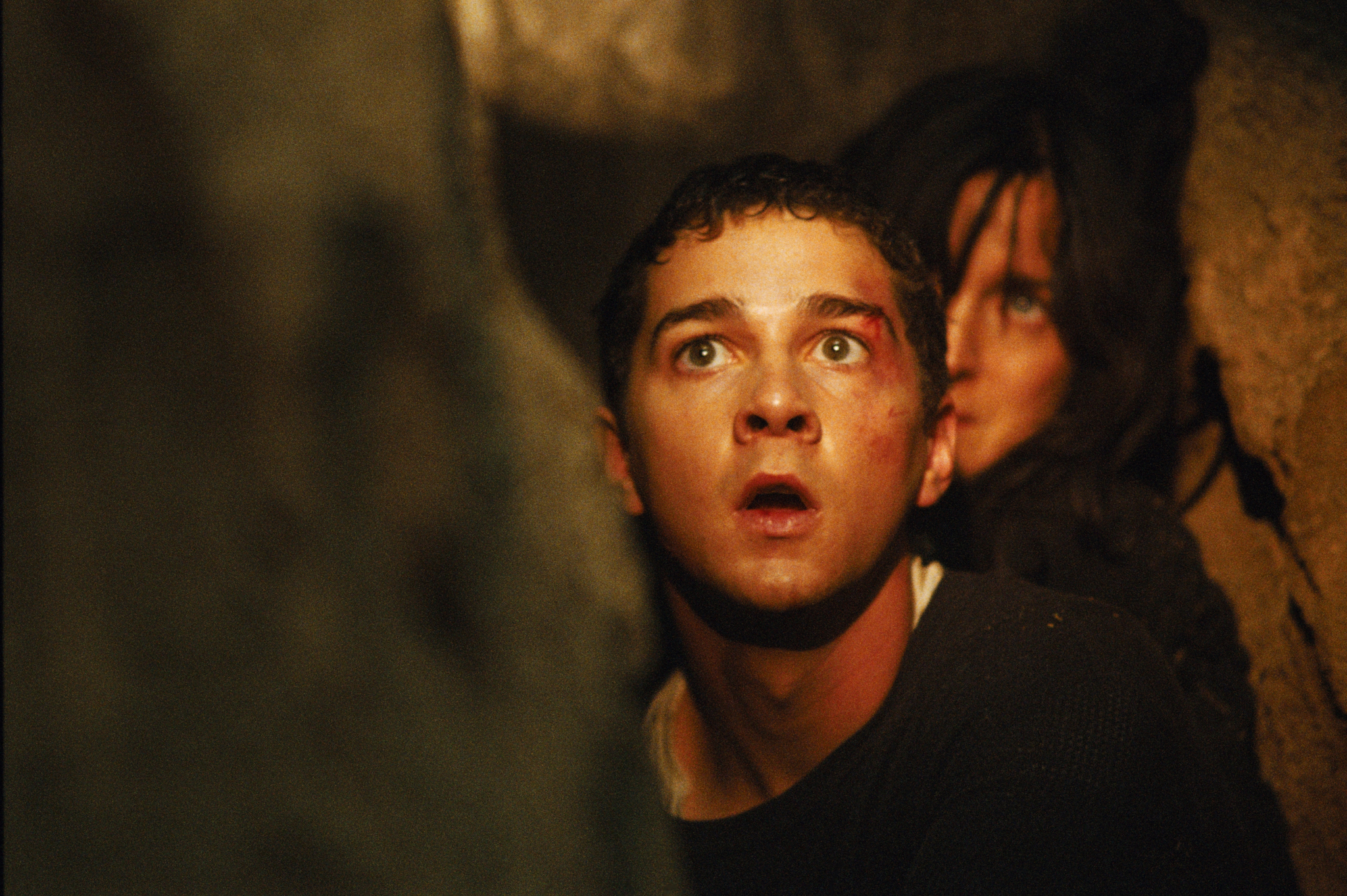
Many people see Disturbia as a new version of the previously mentioned Rear Window by Hitchcock. Indeed, at first glance, Caruso’s film may evoke similar associations. However, there are enough new elements in it to say that the two films are connected mainly by the idea (and its consequences). The screenwriter, Christopher Landon (as he admitted in an interview), was inspired by a visit to a suburban family. Walking down the street and observing the neighborhood, he came up with the idea that such a place was perfect for a thriller plot – you never know what secrets seemingly happy and friendly people living in houses surrounded by carefully trimmed lawns may hide. In this respect, the described title has a lot in common with Joe Dante’s The Burbs. While in Dante’s comedy, the behaviors and appearance of suspicious neighbors were deliberately exaggerated, Mr. Turner in Disturbia is the perfect example of a person not drawing attention, to whom one says ‘good morning,’ not even gracing him with a look or giving him the slightest attention. Kale starts observing the neighbor out of boredom, and slowly doubts arise in his mind. The problem is that the rest of the world operates on old principles – only Kale’s situation changes, disrupting his daily routine. The other residents of the neighborhood, busy with their own affairs, do not seek revelations in their surroundings. Therefore, no one believes Kale. Until a certain point, even friends observing the environment with him are skeptical of his ideas. Can we, therefore, consider Disturbia as a kind of cautionary tale or an attempt to make the viewer think about their daily, ‘ritual’ activities? Perhaps extraordinary things are happening in the reality surrounding us, but we don’t notice them, focused on experiencing another Groundhog Day? It may be too far-reaching a conclusion, but it’s challenging to argue with the seed of uncertainty planted in the viewer’s mind by Caruso’s film…
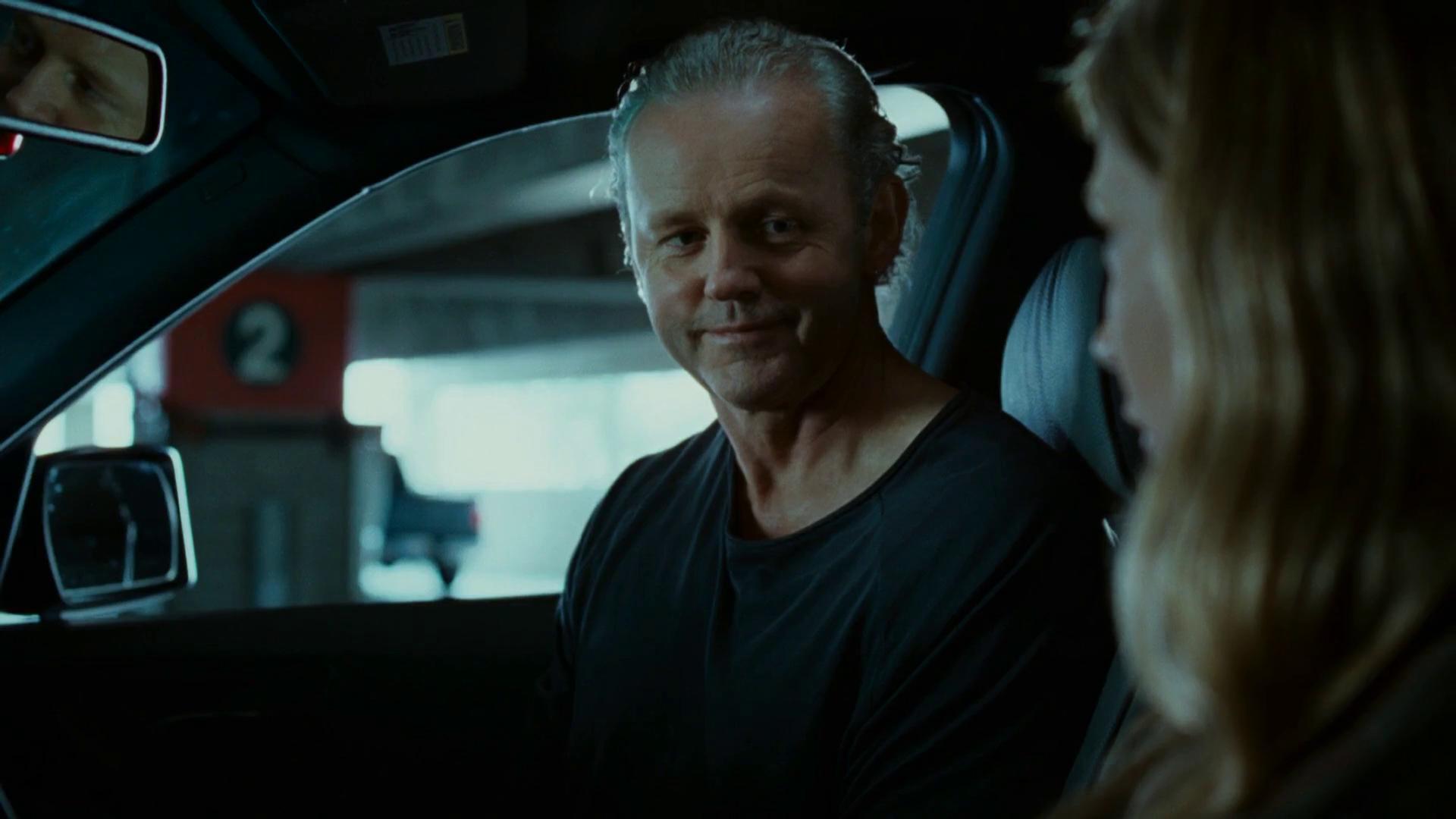
Putting aside the above musings, Disturbia is a solid entertainment product intended for slightly older youth. This does not mean, of course, that others won’t enjoy it during the screening. The director included several ‘winks’ to the attentive viewer (such as Kale’s computer screensaver or the title of the book Ashley reads on the roof). By using similar tricks, the creator shows respect for the audience. Unfortunately, Caruso allowed a few errors and annoying elements to creep into his work, which do not fit with the rest. Primarily, the behavior of certain characters raises significant controversies. I am mainly referring to the police officer supervising Kale. Another significant script snag is the sudden ability of Kale to build a pocket ‘spy device’ by following the architect’s plans for the neighbor’s house. I don’t think one can casually find detailed (and constantly updated) architectural sketches of any building. Another script pitfall is Kale’s sudden ability, thanks to which he builds a pocket ‘spy device.’ Although there is a scene in the film where the boy, following the assembly instructions, puts together something with a camera and a few other electronic elements, it’s somewhat less convincing.
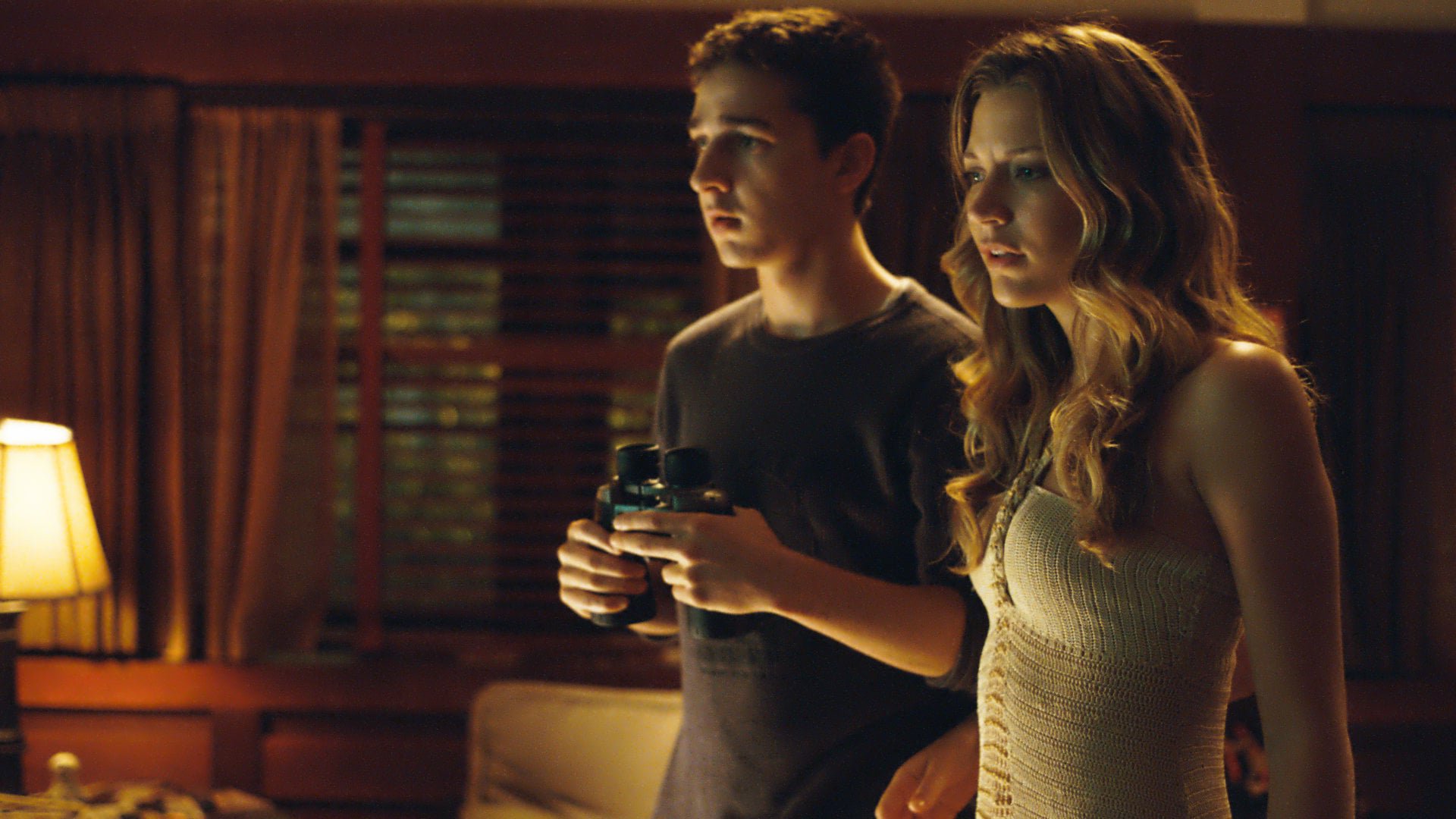
However, this can be attributed to necessary cinematic simplifications, as similar ideas can be found in the film. Some consider the slow unfolding of the action a flaw – only after over half an hour does the main plot gain momentum – as well as the schematic nature of the script. This does not mean that the viewer will be bored at the beginning of the screening. However, if someone expects to be thrown into the whirlwind of events in the first minutes, the production will not meet those expectations.
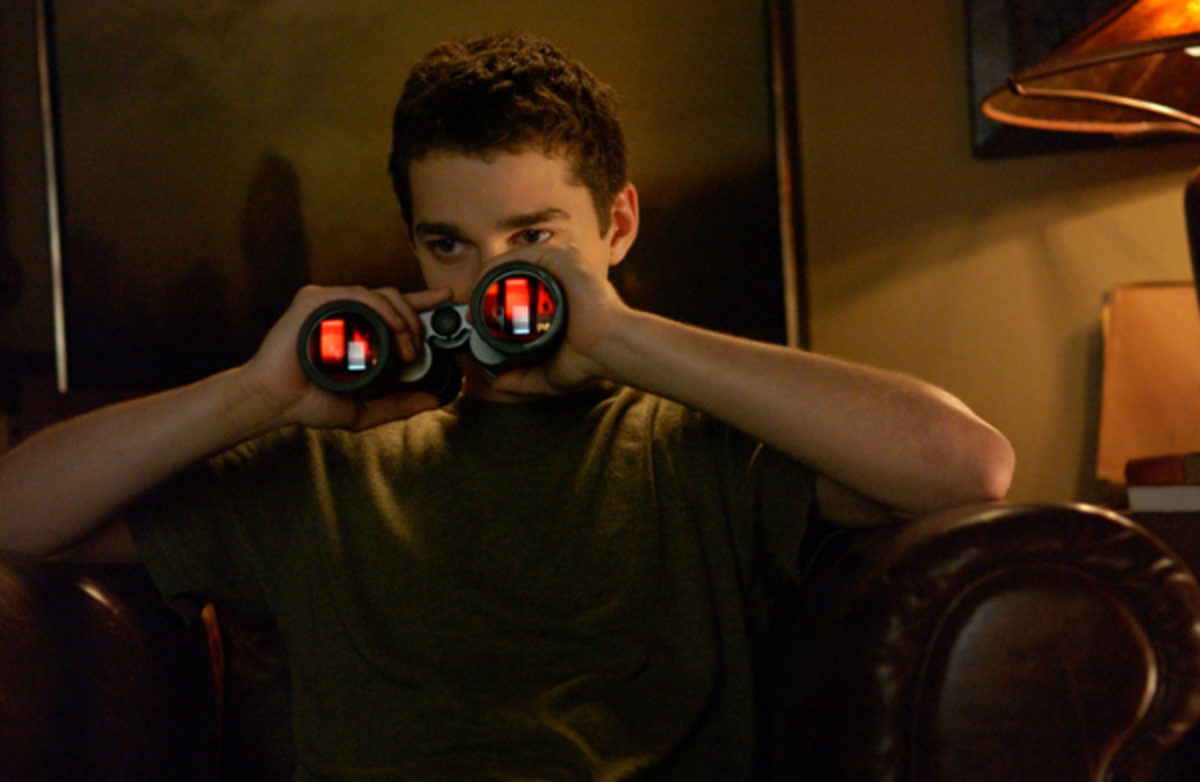
In summary, despite a few flaws, Disturbia is a very decently executed youth thriller with strong comedic and even social elements. Solid acting performances, an interesting (although schematic) plot, a well-developed atmosphere of tension and unease, along with proper cinematography enriched with a well-chosen soundtrack, guarantee that you, dear reader, should not leave the cinema disappointed. Of course, one should not expect a masterpiece, but from time to time, it’s good to see a movie just for entertainment. And Caruso’s film fulfills this role excellently.
Words by Piotr Zymelka.

